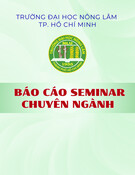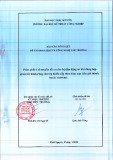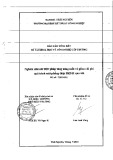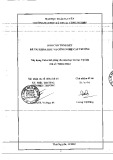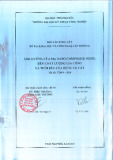
This Provisional PDF corresponds to the article as it appeared upon acceptance. Fully formatted
PDF and full text (HTML) versions will be made available soon.
Phyllosphere yeasts rapidly break down biodegradable plastics
AMB Express 2011, 1:44 doi:10.1186/2191-0855-1-44
Hiroko K Kitamoto (kitamoto@affrc.go.jp)
Yukiko Shinozaki (shinoyk@affrc.go.jp)
Xiao-hong Cao (cao-xiaohong@docomo.ne.jp)
Tomotake Morita (morita-tomotake@aist.go.jp)
Masaaki Konishi (konishi-masaaki@jamstec.go.jp)
Kanako Tago (tago@affrc.go.jp)
Hideyuki Kajiwara (kajiwara@affrc.go.jp)
Motoo Koitabashi (koita@affrc.go.jp)
Shigenobu Yoshida (yoshige@affrc.go.jp)
Takashi Watanabe (takawata@affrc.go.jp)
Yuka Sameshima-Yamashita (yamashita@affrc.go.jp)
Toshiaki Nakajima-Kambe (toshi@sakura.cc.tsukuba.ac.jp)
Seiya Tsushima (seya@affrc.go.jp)
ISSN 2191-0855
Article type Original
Submission date 6 October 2011
Acceptance date 29 November 2011
Publication date 29 November 2011
Article URL http://www.amb-express.com/content/1/1/44
This peer-reviewed article was published immediately upon acceptance. It can be downloaded,
printed and distributed freely for any purposes (see copyright notice below).
Articles in AMB Express are listed in PubMed and archived at PubMed Central.
For information about publishing your research in AMB Express go to
http://www.amb-express.com/authors/instructions/
For information about other SpringerOpen publications go to
AMB Express
© 2011 Kitamoto et al. ; licensee Springer.
This is an open access article distributed under the terms of the Creative Commons Attribution License (http://creativecommons.org/licenses/by/2.0),
which permits unrestricted use, distribution, and reproduction in any medium, provided the original work is properly cited.


















